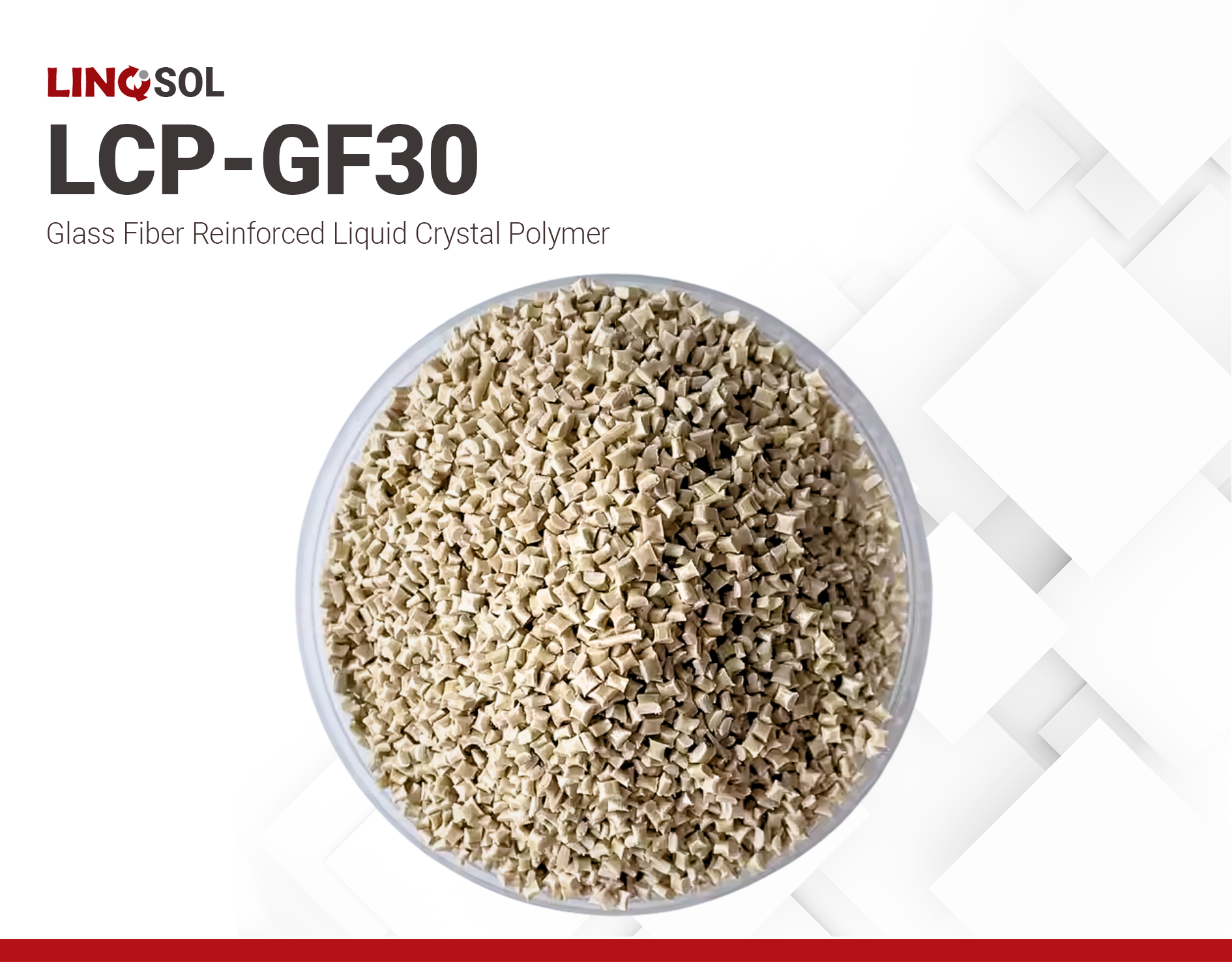LINQSOL LCP-GF30 | Glass Fiber Reinforced Liquid Crystal Polymer
Harmonization Code : 39079900 | Other liquid crystal polymers
Main features
- 30% glass fiber reinforcement
- Excellent thermal properties
- High mechanical strength
Product Description
LINQSOL LCP-GF30 is a liquid crystal polymer (LCP) reinforced with 30% glass fiber, offering an remarkable balance of mechanical properties, thermal stability, and chemical resistance. LCP-GF30 has greater strength and stiffness compared to unfilled LCP, making it suitable for demanding applications requiring precision and durability such as in electronics, aerospace, and automotive industries.
Key Features and Benefits:
- Superior Mechanical Properties: The 30% glass fiber reinforcement increases the material's tensile strength, flexural modulus, and impact resistance, allowing for the production of robust and reliable parts.
- Excellent Thermal Stability: LCPs are known for their high heat resistance, and this reinforced grade further enhances this property, enabling it to withstand high temperatures for extended periods. This makes it suitable for high-temperature environments and demanding processing conditions.
- Exceptional Dimensional Stability: LCPs exhibit minimal shrinkage and warpage, ensuring tight tolerances and dimensional accuracy in molded parts. The glass fiber reinforcement further contributes to this stability.
- Excellent Chemical Resistance: This material is resistant to a wide range of chemicals, including acids, bases, and solvents, making it suitable for harsh environments.
- High Flowability: Despite the glass fiber reinforcement, this LCP retains good flow properties, allowing for the production of complex parts with intricate details.
Technical Specifications
| General Properties | |||||
| Specific Gravity Specific Gravity Specific gravity (SG) is the ratio of the density of a substance to the density of a reference substance; equivalently, it is the ratio of the mass of a substance to the mass of a reference substance for the same given volume. For liquids, the reference substance is almost always water (1), while for gases, it is air (1.18) at room temperature. Specific gravity is unitless. | 1.57 | ||||
| Chemical Properties | |||||
| Water Absorption | 0.02 % | ||||
| Mechanical Properties | |||||
| Elongation Elongation Elongation is the process of lengthening something. It is a percentage that measures the initial, unstressed, length compared to the length of the material right before it breaks. It is commonly referred to as Ultimate Elongation or Tensile Elongation at break. | 1.8 % | ||||
| Impact Strength | 0.201-0.535 mm | ||||
| |||||
| |||||
| |||||
| Thermal Properties | |||||
| |||||



